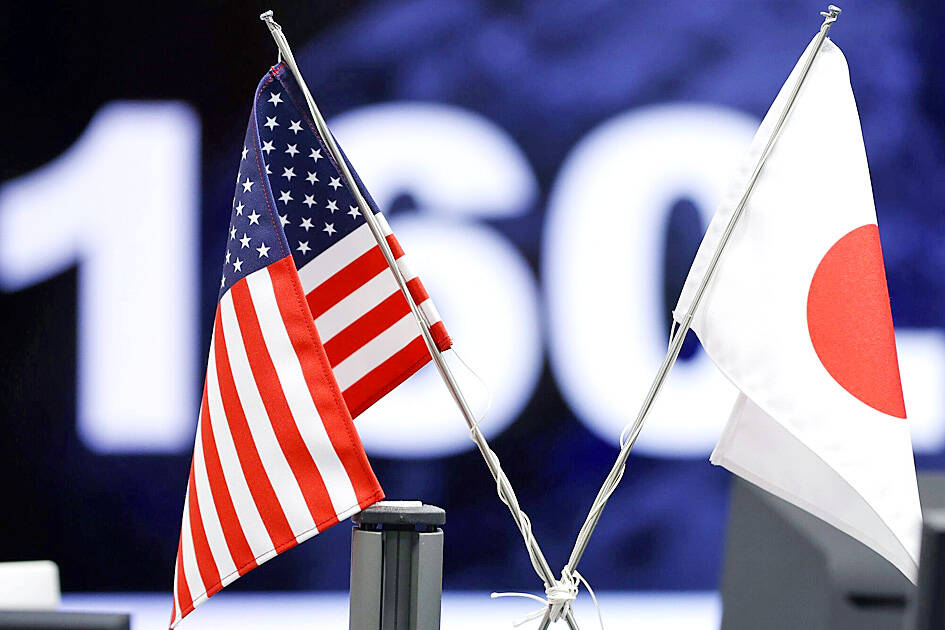By Fang Wei-li
and William Hetherington /
Staff reporter, with staff writer
Guatemala is set to enter into a strategic partnership with Japan, becoming the second diplomatic ally of Taiwan to do so after Paraguay made a similar move last month, a source said on Sunday.
The anticipated announcement follows a trend among Taiwan’s diplomatic allies — such as Paraguay and Palau — who have been gradually forming a multilateral strategic alliance, the source said.
“The trend reflects US-Japan efforts to help Taiwan strengthen diplomatic ties and expand its international presence, and serves as a strategic counterbalance to China,” they said.

Photo: Bloomberg
Guatemalan President Bernardo Arevalo arrived in Taiwan on a state visit on Thursday, and was expected to follow that trip with a visit to Japan to meet with Japanese Prime Minister Shigeru Ishiba, they said.
“It is expected that the two sides would announce a strategic partnership following that meeting,” they added.
When US Secretary of State Marco Rubio visited Guatemala earlier this year, he emphasized Washington’s support for deepening Taiwan-US-Guatemala ties into a more comprehensive partnership, the source said.
“That signifies that Taiwan-Guatemala ties would move beyond bilateral cooperation, shifting toward a new quadrilateral framework,” they said.
The Ministry of Foreign Affairs on Friday rejected Beijing’s criticism of Taiwan’s evolving diplomatic ties, stating that the “Republic of China (Taiwan) is a sovereign and independent nation committed to maintaining cross-strait peace, despite China’s provocations and attempts to undermine regional stability.”
Taiwan’s relations with its diplomatic allies are based on mutual respect, equality and reciprocity — principles that no foreign government has the right to interfere with, it said.
Taiwan National Security Institute deputy secretary-general Marco Ho Cheng-hui (何澄輝) said that China has long sought to exert political influence in Latin America.
“Latin America is the US’ backyard and we have seen China attempt to get a foothold there through strategic projects such as the Chancay Port in Peru, and plans for a transcontinental railway,” he said.
“Beijing is even trying to gain political influence over key infrastructure such as the Panama Canal via Hong Kong investments, all of which pose strategic threats to the US,” he added.
Rubio, who is of Cuban descent, has made Latin America a key focus as part of a policy direction toward solidifying ties with Taiwan’s allies and preventing them from severing relations under pressure or inducements from China, the source said.
“This helps Taiwan avoid diplomatic isolation, and also reinforces US strategic influence in the region,” he said.
As part of its evolving strategic policy, the US aims to convey to countries that China is “not their only option,” and is touting Japan’s position as one of the world’s largest overseas investors, he said.
“Japan has long-standing investment foundations and industrial advantages in Latin America, and is a favored partner for many nations,” he said.
“Therefore, Japan has become the US’ most trusted ally in the Indo-Pacific region, with Washington encouraging Tokyo to take on even greater responsibility,” he added.

AloJapan.com